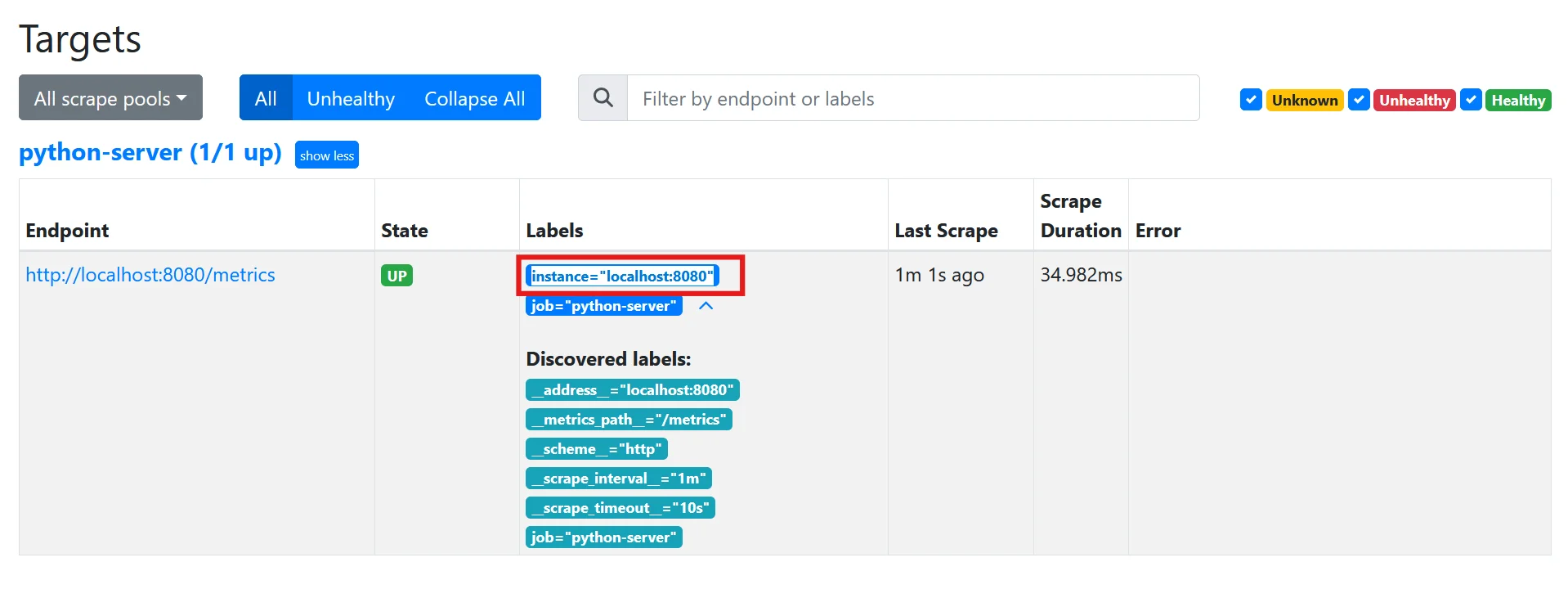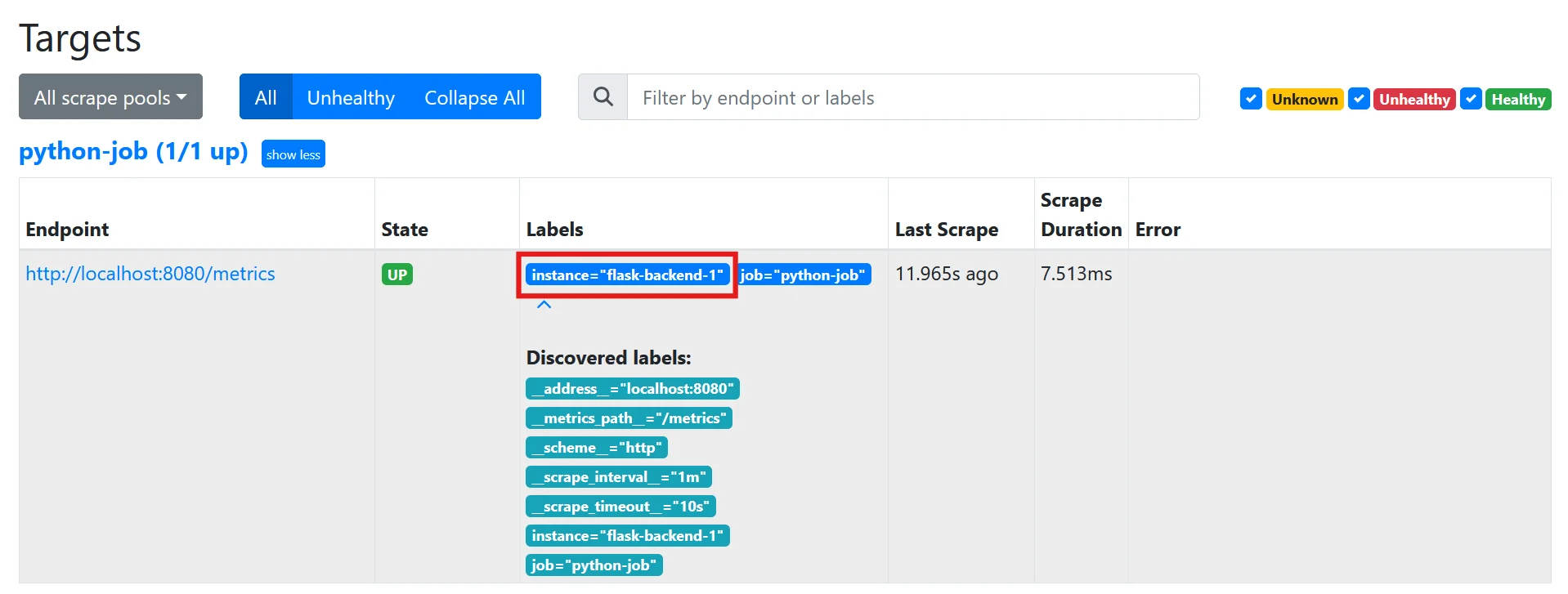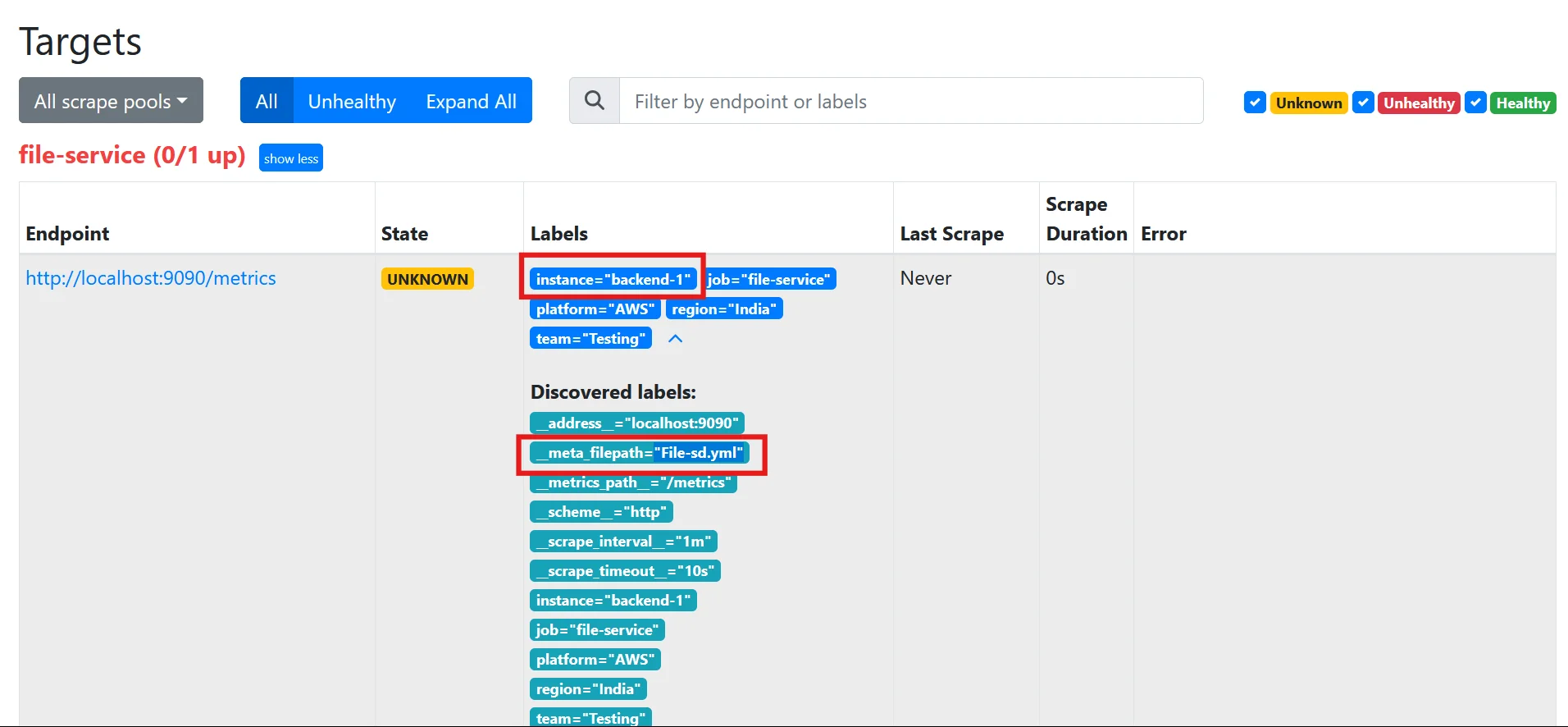How to Relabel Instance to Hostname in Prometheus
Prometheus, a powerful open-source monitoring system, uses labels to identify and organize metrics. One crucial label is the "instance" label, which typically contains the IP address of the target being monitored. However, IP addresses can be challenging to read and interpret, especially in large-scale environments. This is where relabeling instances to hostnames comes in handy. By replacing IP addresses with more human-readable hostnames, you can significantly improve your monitoring experience and make troubleshooting easier.
Understanding Prometheus Labels and Instances
Labels are key-value pairs in Prometheus that provide metadata about metrics. The instance label, by default, refers to the IP address and port of a target, but in complex environments, IPs alone can be cryptic. Using hostnames instead of IPs makes monitoring more intuitive and debugging faster, especially when correlating with logs or other monitoring tools.

While IP addresses serve their purpose, they present several challenges:
- Readability: IP addresses are not intuitive for humans to interpret quickly.
- Volatility: In dynamic environments, IP addresses may change frequently.
- Context: IP addresses don't provide immediate context about the target's role or location.
Relabeling instances to hostnames addresses these issues, making your Prometheus metrics more user-friendly and informative.
Why Relabel Instance to Hostname in Prometheus?
Relabeling instances to hostnames in Prometheus offers several benefits:
- Improved readability: Hostnames like "user-backend-server-01" are more intuitive than "192.168.1.100".
- Better correlation: Hostnames align with other system logs and monitoring tools.
- Enhanced troubleshooting: Quickly identify problematic hosts without IP lookup.
- Consistent identification: Maintain consistent labels even if IP addresses change.
By relabeling instances, you create a more efficient and user-friendly monitoring environment.
Methods to Relabel Instance to Hostname in Prometheus
Prometheus allows relabeling through different configurations. The most common approach is using relabel_configs in the Prometheus configuration file. We’ll also explore service discovery methods and external tools to handle relabeling dynamically.
Relabeling with relabel_configs
The relabel_configs option in Prometheus allows you to manipulate labels before they are stored. Here's how to use it to replace IP addresses with hostnames:
- Open your Prometheus configuration file (usually
prometheus.yml). - Locate the
scrape_configssection for the job you want to relabel. - Add a
relabel_configsblock with the following structure:
scrape_configs:
- job_name: 'python-job'
static_configs:
- targets: ['localhost:8080']
labels:
instance: 'flask-backend-1'
relabel_configs:
- source_labels: [__address__]
target_label: instance
replacement: flask-backend-1
Explanation:
- The
relabel_configssection takes the value of the__address__label, which in this case islocalhost:8080. - Instead of keeping that value, it sets the
instancelabel explicitly toflask-backend-1, ignoring the actual address.
In other words, it simply ov

Service Discovery for Dynamic Hostname Resolution
If your environment is more dynamic, use service discovery to map IPs to hostnames automatically. Prometheus supports various service discovery mechanisms, including DNS-based and file-based options.
DNS-based Service Discovery and Relabelling
Prometheus can be configured to query DNS for service instances using a variety of record types, including A, AAAA, SRV, MX, and NS. The configuration specifies the DNS names to be queried, the query type, and the refresh interval for discovering new targets.
Example Configuration:
scrape_configs:
- job_name: 'dns-service'
dns_sd_configs:
- names:
- 'service.example.com'
type: 'A' # Specify the type of DNS query
port: 9090 # Port to use for non-SRV records
refresh_interval: 30s # Refresh interval for querying DNS
Instance Relabeling
When Prometheus discovers targets via DNS, it attaches meta labels that can be used for advanced relabeling. This allows for customization of target labels based on the metadata retrieved from DNS records. For instance, if using SRV records, you can extract the service name, zone, or other relevant information directly from the DNS response.
Example Relabeling Configuration:
relabel_configs:
- source_labels: ['__meta_dns_name']
regex: 'service\.(.+?)\.example\.com'
target_label: 'service_name'
replacement: '$1'
- source_labels: ['__meta_dns_srv_record_target']
target_label: 'instance'
You can check out the documentation here, to make effective use of meta labels.
File-based Service Discovery
For environments without DNS, file-based service discovery is an alternative. Create a JSON or YAML file with your targets and hostnames, and point Prometheus to this file:
- targets: ["localhost:9090"] # replace with ip and port of required server
labels:
region: "India"
team: "Testing"
platform: "AWS"
instance: 'backend-1' # labelling can be specified here or in the prometheus.yml file using relabel_configs
Configure Prometheus:
scrape_configs:
- job_name: 'file-service'
file_sd_configs:
- files:
- 'File-sd.yml'
Prometheus will use the labels from the file for instance relabeling.

Advanced Techniques for Instance Relabeling
If your environment is more complex, you may need advanced techniques for relabeling. Here are some tips:
Meta labels: Use meta labels like
__meta_kubernetes_node_namein Kubernetes to automatically relabel instances based on node names or other metadata.Multi-stage relabeling: You can apply multiple
relabel_configsfor more granular control. For instance, first map an IP to a hostname, and then apply further transformations based on service or location.relabel_configs: - source_labels: [__meta_kubernetes_node_name] target_label: instance - source_labels: [instance] regex: 'node-(.*)' target_label: region replacement: 'us-east-$1'
Handling Edge Cases
If you have special network configurations or dynamic IP changes, you might need to resolve hostnames externally, such as using custom scripts or external systems for hostname resolution and importing that into Prometheus.
Best Practices and Common Pitfalls
When relabeling instances in Prometheus, keep these best practices in mind:
- Consistency is key: Ensure that relabeling configurations are consistent across your entire monitoring setup. Inconsistent labels can create confusion.
- Avoid excessive relabeling: Too many relabeling steps can impact performance, especially in large setups.
- Maintain backward compatibility: When switching from IPs to hostnames, ensure that legacy systems and configurations still work during the transition.
- Document everything: Keep your relabeling rules well-documented for team reference.
Common pitfalls to avoid:
- Overwriting critical labels unintentionally
- Creating duplicate metrics with different label sets
- Relying on unstable or frequently changing hostnames
Monitoring Relabeled Instances with SigNoz
While Prometheus provides powerful relabeling capabilities, visualizing and analyzing the relabeled metrics can be enhanced with a tool like SigNoz. SigNoz is an open-source APM that offers advanced visualization and analysis features for your monitoring data.
- Simplified Visualization: SigNoz provides an intuitive way to view hostname-labeled instances, making it easy to correlate metrics with service names.
- Instance-Level Insights: Get deeper insights into individual instances beyond basic time-series data.
- Easy Integration: SigNoz integrates smoothly with Prometheus, letting you monitor hostname-based metrics without complex configurations.
SigNoz Cloud is the easiest way to run SigNoz. Sign up for a free account and get 30 days of unlimited access to all features.
You can also install and self-host SigNoz yourself since it is open-source. With 24,000+ GitHub stars, open-source SigNoz is loved by developers. Find the instructions to self-host SigNoz.
Once set up, SigNoz can ingest your Prometheus metrics, including the relabeled instance names. This allows you to create more intuitive dashboards and alerts based on your hostname-labeled metrics.
Key Takeaways
- Relabeling instances to hostnames in Prometheus significantly improves the usability and clarity of your monitoring setup.
- You can relabel the instance to the hostname in Prometheus using
relabel_configs, service discovery, or external tools . - Advanced techniques like meta labels and multi-stage relabeling give you flexibility in complex environments.
- SigNoz enhances monitoring by visualizing hostname-based metrics, making it easier to manage distributed systems.
FAQs
How does relabeling affect Prometheus’ performance?
Relabeling itself doesn’t have a major performance impact, but complex or excessive relabeling can slow down scrape times.
Can I use both IP addresses and hostnames as labels in my Prometheus setup?
Yes, you can maintain both IP addresses and hostnames as labels. This can be achieved by creating a new label for the hostname while keeping the original instance label:
relabel_configs:
- source_labels: [__address__]
target_label: ip_address
- source_labels: [__address__]
regex: '(.*):.*'
target_label: hostname
replacement: '${1}'
This approach allows you to reference targets by either IP or hostname as needed.
What are the security implications of using hostnames instead of IP addresses?
Using hostnames can potentially expose more information about your infrastructure. Ensure that your Prometheus instance and its configurations are properly secured. Additionally, be cautious about exposing hostname information in public metrics or alerting systems.
How do I handle dynamic IP addresses when relabeling to hostnames?
For environments with dynamic IP addresses, consider using a service discovery mechanism that can update hostname mappings automatically. DNS-based service discovery or integration with your cloud provider's API can help maintain accurate hostname labels even as IP addresses change.
